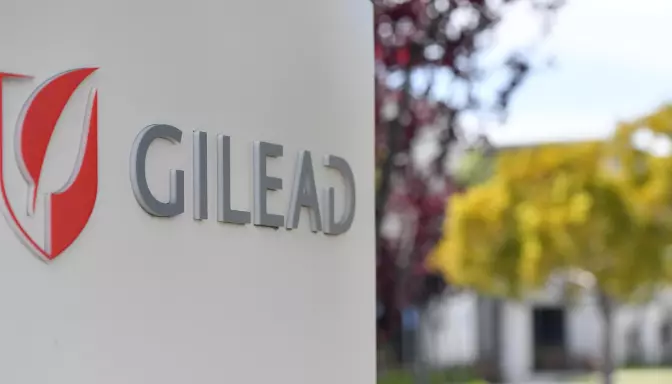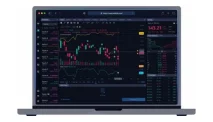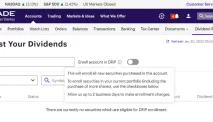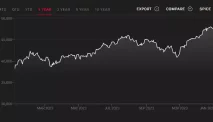Diksia.com - Gilead Sciences is one of the world’s leading biopharmaceutical companies, with a portfolio of innovative therapies for treating HIV, hepatitis B, hepatitis C, and certain cancers. The company also made headlines in 2020, when its antiviral drug Veklury (remdesivir) became the first approved treatment for COVID-19 in the U.S. In this article, we will explore the strengths, weaknesses, opportunities, and threats of Gilead stock, and why it might be a good investment for the long term.
Strengths: A Strong Cash Flow and a Diversified Pipeline
One of the main strengths of Gilead stock is its strong cash flow, which allows the company to invest in research and development, acquire new assets, and reward shareholders with dividends and buybacks. In the third quarter of 2023, Gilead generated $6.5 billion in operating cash flow, up 13% year-over-year, and returned $2.9 billion to shareholders. The company also has a solid balance sheet, with $25.8 billion in cash and equivalents, and $23.9 billion in debt as of September 30, 2023.
Another strength of Gilead stock is its diversified pipeline, which includes more than 40 clinical programs across various therapeutic areas. Some of the most promising candidates are:
- Trodelvy, a first-in-class antibody-drug conjugate for treating triple-negative breast cancer and other solid tumors. Gilead acquired Trodelvy’s developer, Immunomedics, for $21 billion in 2020, and expects the drug to generate peak annual sales of more than $10 billion.
- Lenacapavir, a long-acting injectable for treating HIV. Lenacapavir is currently in phase 3 trials, and could be a game-changer for patients who are resistant to or intolerant of existing therapies.
- Tirzepatide, a dual GLP-1 and GIP receptor agonist for treating type 2 diabetes. Tirzepatide is being developed in collaboration with Eli Lilly, and has shown superior efficacy and safety compared to existing treatments in phase 3 trials.
- Magrolimab, a first-in-class anti-CD47 monoclonal antibody for treating myelodysplastic syndrome and acute myeloid leukemia. Magrolimab is being developed in partnership with Forty Seven, which Gilead acquired for $4.9 billion in 2020, and has received breakthrough therapy designation from the FDA.
Weaknesses: A Declining HIV Franchise and a Competitive Landscape
One of the main weaknesses of Gilead stock is its declining HIV franchise, which accounts for more than half of its total revenue. Gilead’s HIV drugs face increasing competition from generic versions, as well as from newer entrants such as ViiV Healthcare, a joint venture between GlaxoSmithKline and Pfizer. In the third quarter of 2023, Gilead’s HIV product sales decreased by 7% year-over-year, to $3.8 billion.
Another weakness of Gilead stock is its competitive landscape, which is constantly evolving and challenging its market position. For example, Gilead’s hepatitis C drugs, which once generated more than $10 billion in annual sales, have been largely displaced by cheaper and more effective alternatives from AbbVie and Merck.
Similarly, Gilead’s Veklury, which was hailed as a breakthrough for COVID-19, has seen its demand and revenue decline as more vaccines and treatments become available. In the third quarter of 2023, Gilead’s Veklury sales dropped by 36% year-over-year, to $873 million.
Opportunities: A Growing Oncology Segment and a Strategic Partnership with Merck
One of the main opportunities for Gilead stock is its growing oncology segment, which is expected to become a major growth driver for the company in the coming years. Gilead has been aggressively expanding its presence in the oncology market, through acquisitions, collaborations, and internal development. In addition to Trodelvy and Magrolimab, Gilead also has several other oncology drugs in its portfolio, such as:
- Yescarta, a CAR-T therapy for treating certain types of lymphoma and leukemia. Yescarta was the first CAR-T therapy to be approved by the FDA, in 2017, and has generated $1.6 billion in cumulative sales since then.
- Tecartus, another CAR-T therapy for treating mantle cell lymphoma. Tecartus was approved by the FDA in 2020, and has shown strong uptake and patient outcomes.
- Jyseleca, a JAK inhibitor for treating rheumatoid arthritis and other inflammatory diseases. Jyseleca was approved in Europe and Japan in 2020, and is awaiting approval in the U.S., where it could face competition from AbbVie’s Rinvoq and Pfizer’s Xeljanz.
- Kite, a subsidiary of Gilead that specializes in cell therapy. Kite has a robust pipeline of CAR-T and TCR therapies for various hematologic and solid tumors, and is also developing next-generation platforms such as allogeneic and off-the-shelf products.
Another opportunity for Gilead stock is its strategic partnership with Merck, which was announced in February 2021. The two companies have agreed to co-develop and co-commercialize lenacapavir and islatravir, two long-acting injectables for treating HIV.
The combination of lenacapavir and islatravir could offer a superior option for HIV patients, as it would require only one injection every six months, compared to the daily pills or monthly injections that are currently available. The partnership could also help Gilead and Merck fend off the competition from ViiV Healthcare, which is also developing a long-acting injectable for HIV, called cabotegravir.
Threats: A Regulatory Uncertainty and a Legal Risk
One of the main threats for Gilead stock is the regulatory uncertainty that surrounds its products, especially in the U.S., where the Biden administration has pledged to lower drug prices and increase access to health care. Gilead’s drugs are among the most expensive in the market, and could face pressure from the government, insurers, and patients to reduce their costs.
For example, Gilead’s Veklury, which was priced at $3,120 per course of treatment in the U.S., was criticized by some lawmakers and advocacy groups as being too high, given the mixed results of its clinical trials.
Another threat for Gilead stock is the legal risk that stems from its patent disputes and antitrust lawsuits. Gilead has been involved in several litigation cases over the years, with competitors, governments, and non-governmental organizations, over the validity and infringement of its patents, as well as the alleged anti-competitive practices of its business.
For instance, Gilead is currently facing a lawsuit from the U.S. Department of Justice, which claims that the company infringed on the government’s patents for Truvada and Descovy, two of its HIV drugs that are also used for pre-exposure prophylaxis (PrEP). The lawsuit seeks damages and royalties from Gilead, as well as an injunction to stop the company from selling the drugs.
Conclusion: A Buy for the Long Term
Gilead stock is currently trading at $81.01 per share, as of December 29, 2023, down 0.16% from the previous close. The stock has a market capitalization of $100.94 billion, a price-to-earnings ratio of 17.40, and a dividend yield of 3.70%. The stock has a 52-week high of $88.29, and a 52-week low of $72.87.
Based on the analysis above, we believe that Gilead stock is a buy for the long term, as the company has a strong cash flow and a diversified pipeline, which could offset the challenges of its declining HIV franchise and its competitive landscape.
The company also has several growth opportunities in the oncology market, as well as a strategic partnership with Merck for its HIV program. The company faces some regulatory uncertainty and legal risk, but these are unlikely to have a material impact on its financial performance and outlook.






